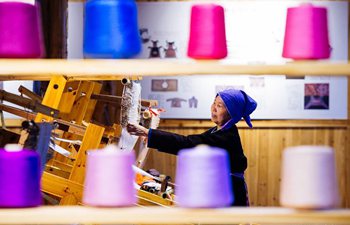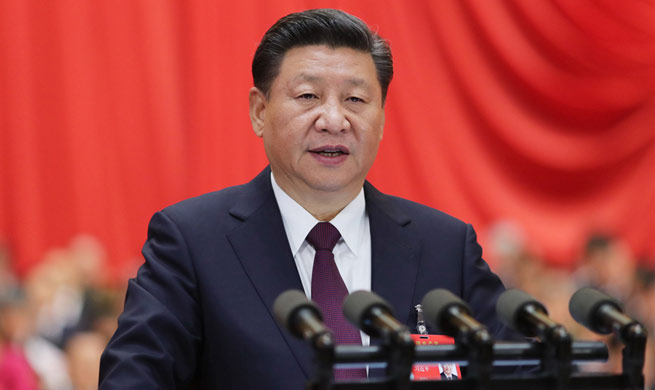by Xinhua writer Liu Wei
BEIJING, Nov. 17 (Xinhua) -- After seven years in journalism, Li Ying, 35, left the corporate world to strike out on her own. It took one afternoon to find an office for her consultancy firm - a room for eight employees in a southwest Beijing co-working space.
"A married woman has a lot to balance to start her own business. Co-working makes it a lot easier to access services," Li says. She was lucky as the 3,300 available places were snapped up in seven months.
The authorities have been encouraging young Chinese to start their own businesses and innovate in recent years. Millennials have more freedom in choosing jobs and getting finance. However, youthful enthusiasm often makes a hard landing in reality.
The foremost challenge is to find a work place, but traditional office spaces are often costly, so freelancers and start-ups often rent an apartment.
IT graduate Wang Peng recalls how his first scheme failed: "I dared not bring investors to our work place. We only met in five-star hotels, so they saw us as frauds, which led to no financing."
But a lot of commercial property is sitting empty. A report from the Institute of Market and Price of the National Development and Reform Commission says China's commercial property inventory significantly exceeds the housing inventory.
Mao Daqing saw huge potential in unlocking the unused space.
The former vice-president of Vanke, one of China's largest property companies, founded UrWork in 2015 and now has branches in 30 cities, serving 80,000 people.
A recent report by Colliers International estimates the shared office space sector is growing by 30 percent a year with a boom in entrepreneurship and demand for flexible working.
Half of the 4,000 companies renting UrWork spaces are start-ups. "Co-working is not simply renting work spaces," says Mao. "Our projects cater for different needs. We aim to build a community among co-workers. For small and medium-sized companies, we often act as incubator and accelerator."
UrWork renovated a vacant supermarket over four months to make its first community in east Beijing. Traditional spaces are fully refurbished so co-workers can share a gym, kitchen, store, cafe and lounge.
Through an app, UrWork tenants can book a meeting room, find a designer or legal advice.
"One big advantage of co-working is you can enjoy services offered by others working here," says Li.
A work station costs 1,800 to 2,200 yuan a month, but people and enterprises become well connected, which is conducive to doing business.
Zhiguagua.com, a company and IP registration start-up, took up a couple of work stations in 2015 and provided most of its fellow tenants with registration services. Orders have increased seven-fold and it now serves Chinese enterprises in Singapore too.
Runnar, which organizes and promotes marathons in China and around the world, worked with a charity group to raise funds and adopted a new facial recognition technique from an IT company for position photos of marathon runners.
"You only see desks, but it's what's behind the desks that matters. For example, we can meet our investment and financing needs," says Runnar market supervisor Zheng Hao. "No communication can kill great ideas."
A report to the 19th National Congress of the Communist Party of China last month pointed out the contradiction between unbalanced and inadequate development and the people's desire for better living standards.
One way to ease this tension is to unshackle underused resources and seek talented people in local communities.
UrWork is making inroads in suburbs of metropolises and third-tier cities.
Chinese entrepreneurs are still seeing the economic benefits of co-working instead of its efficiency, says Mao. "Time is money. Enterprises take longer to find support if they don't make full use of shared office resources."
Businesses are trying to be more mobile and flexible as they expand to other cities, driving the shared office market in China's third-tier or even fourth-tier cities.
For Li, who cares for both her child and aging parents, an added benefit is an office close to home.
"I expect the suburbs to be the next pool of innovation," Li says. "My dream is to build my consultancy into a Chinese think-tank."

















